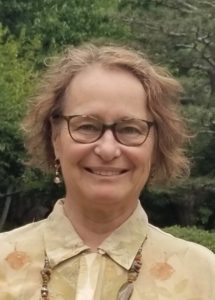Mark
I was first taught about tough love at thirteen, lined up in the garage with my parents. My brother faced us, eyes red, blond hair dirty, and begged, but we couldn’t let him into the house. He was a fifteen-year-old drug addict runaway. Treatment number one had failed and he was supposed to be living in a halfway house but he wanted to come home. He said he would be better, he would follow the rules. His halfway house counselors, though, had already called us. They told us that if we loved him (and we did), we had to be tough. It was for his own good.
It was winter in Minnesota. My brother’s navy down jacket looked too thin, too short, not enough to protect him. I couldn’t imagine how he spent his days. Where he was going to sleep. Most of all I couldn’t imagine not letting him into the house. His house. Our house. But I was the good child, so I stood with my parents until he went away again. Back upstairs my father started crying, something else I hadn’t been able to imagine. I went to my room, opened a book, and tried not to think about my brother out in the cold, with nowhere to go. Tried not to hate his counselors; addicts themselves, they must know what was right.
My second lesson came that summer, at a treatment center in Mandan, North Dakota (the best one in the country, we were told). I was asked to prepare a list of all the ways my brother had let me down because of his addiction. I was an A student, and so I came to the family group with list in hand, and when he sat in front of me, I dutifully, traitorously, choked it out. “I don’t want you to be the King of the Burnouts!” I said. He cried. I cried. Later I tried to take it all back, re-establish sibling loyalty, but he only smiled and took me to the piano in the common room and asked me to play something for him and his friends. I sat on the bench for a while, but I didn’t have any music with me and I couldn’t play by ear.
As our twenties and thirties went by and the number of his relapses and recoveries grew, Al-Anon phrases like “I am not responsible” and “It’s not my fault” became mantras. My tough love stopped leaving wounds and formed a callous. Like his down jacket, it proved stronger than it seemed. By our forties I only saw him every few years. I celebrated his bouts of sobriety from afar. When they found him dead, it was in a bathroom, in an apartment, that I’d never seen. No one had expected him to reach thirty, least of all him, but he made it to fifty-two. I’m still trying not to hate his counselors. What did they know about love?
• • •
 Jody Strimling-Muchow is a playwright, an actor, and a crazy knitting lady who writes prose. Some of her favorite recent projects include writing about writing for the Get Lit Beacon Blog, and seeing her short play, Untitled, about the experience of living through a pandemic, produced on Zoom. She is currently working on a memoir.
Jody Strimling-Muchow is a playwright, an actor, and a crazy knitting lady who writes prose. Some of her favorite recent projects include writing about writing for the Get Lit Beacon Blog, and seeing her short play, Untitled, about the experience of living through a pandemic, produced on Zoom. She is currently working on a memoir.
• • •
Wild Animal Tracks
wild
animals
leave imprints
in snow
like sentences
chiseled
on rune stones
winds blow
obliterate edges
whole
vocabularies
and grammars disappear
like ghosts
in grandmother’s
stories
i walk
on snowshoes
through a copse
of trees
cautiously
stepping back
from wild
animal
tracks
• • •
 Andrea E. Johnson had a long public health career focused on maternal child health, refugee health, and school community health. Andrea has been writing poetry for two years, studying with Minnesota poets through grants funded by the Minnesota Legacy Amendment. She is also a contemporary textile artist.
Andrea E. Johnson had a long public health career focused on maternal child health, refugee health, and school community health. Andrea has been writing poetry for two years, studying with Minnesota poets through grants funded by the Minnesota Legacy Amendment. She is also a contemporary textile artist.